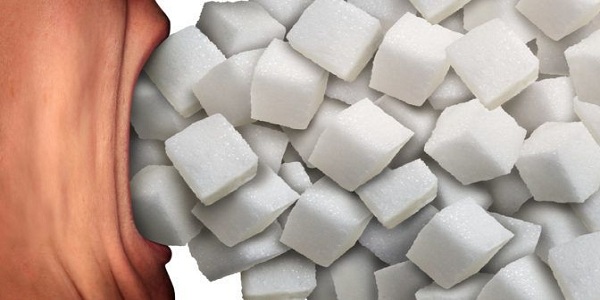

| Online: | |
| Visits: | |
| Stories: |
Warning: Sugar Destroys Your Body’s Ability to Absorb These 5 Essential Nutrients
Sponsored Links
by Family Health Freedom Network
Even though most of the people are aware of the negative effects of sugar, they still consume it in large amounts. For instance, Americans consume an average of 150 Ibs of sugar per year. Besides leading to obesity, diabetes and cancer, high amounts of sugar can also cause nutrient deficiency and reduces the absorption of essential vitamins and minerals needed by the body.
The consumption of too much sugar prevents the absorption of vitamin C since they both use the same transporters in order to reach the cells. In other words, increased glucose levels inhibit vitamin C from entering the cells which results in limited vitamin absorption. Furthermore, this leads to suppressed tissue regeneration and decreased immune function.
Sugar can also degrade vitamin D since it decreases the enzymes needed to synthesize this vitamin, which leads to vitamin D deficiency. Unfortunately, this condition leads to dementia, inflammation, infections, cancer and autoimmunity.
The consumption of too much sugar causes high blood sugar and increases insulin levels which promote magnesium excretion by the kidneys, thus inhibiting tubular reabsorption of the mineral. Since magnesium is essential in some bodily functions like nerve regulation, bone building, etc, its deficiency will lead to severe side-effects.
Moreover, entering too much sugar in your organism affects chromium absorption by excreting the essential mineral. This mineral is extremely important since it promotes blood glucose control, macronutrient metabolism and insulin binding. Chromium deficiency leads to high blood sugar levels and poor glucose tolerance.
When it comes to calcium, It is vital for electrolyte balance, skeletal health and blood clotting, so excessive sugar intake can negatively affect vitamin D which can cause a ripple effect to the body’s calcium absorption. Calcium deficiency also leads to numerous adverse effects.
Sweet killer: The nasty effects of high sugar intake on the body
Nowadays, people are more and more aware of the side-effects of excessive consumption of sugar. For instance, too much sugar can lead to suppressed immune function as well as to trigger hyperactivity in children. Moreover, it can lead to advanced aging, increased blood acidity and kidney damage.
Besides the abovementioned, excessive consumption of sugar can also cause candida, asthma, digestive disorders, tooth decay, arthritis, depression, free radical formation, eczema, atherosclerosis, brittle tendons, etc. However, the most hazardous effects are increased liver and kidney sizes.
RELATED POSTS
Every Day is Earth Day
Source: http://feedproxy.google.com/~r/riseearth/KZKa/~3/9cO-4R5D6IE/warning-sugar-destroys-your-bodys.html






Yup – I quit sugar last year.

My high fat, low carb, zero sugar diet is fantastic!
And I lost ~40 pounds just like that >snap<…
Type 2 Diabetes is 100% totally self-inflicted – not certain when people are gonna figure it out.
I have, and I don't suffer from it. Feel great.